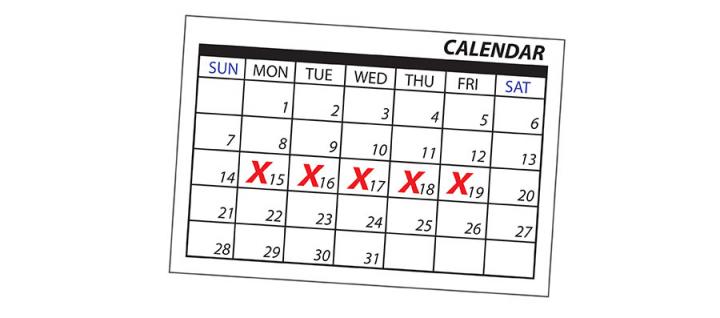How to create a menstrual friendly workplace
No one works to the best of their ability if their basic needs are not met in the workplace.

Menstruation is a physiological process and is experienced by at least 50% of the population. There a few basic things that management should think about when designing and setting up the workspace for their team. We’ve pulled together our top tips as a starting point, but it is worth asking the team you work with for their input where possible.
Office facilities
When menstruating, it is essential to have regular access to toilets. If possible, this should be close to the workspace to minimise disruption and give easy access. Menstrual cups are becoming more popular as an environmentally friendly way to manage menstrual loss. These devices require washing and a self-contained toilet with a sink is ideal. If designing new facilities, perhaps unisex cubicles with sink would meet needs better than separate male/female units. Specialised disposal bins are necessary for pad/tampon disposal. Fab little bag are a company that make biodegradable disposal bags for pads and tampons. This may help smaller employers to create a menstrual friendly workplace. Many offices/schools/institutions are now providing free pads and tampons in their toilet facilities. Menstruation can occur irregularly, meaning people can be caught out. You could consider providing these or encourage a take/donate scheme.
Office décor
Menstrual blood loss can occasionally be so heavy that it floods through any protection worn. This can be very embarrassing and is made much better if darker chair fabrics with wipe clean surfaces are available. When choosing fabric for the office, consider the impact on those who menstruate along with other factors.
Uniforms
Again, darker fabrics for trousers/skirts are more forgiving for people who are menstruating. Body temperature can also change throughout the menstrual cycle so breathable is best. This is also a big consideration for those experiencing menopausal symptoms. Providing a locker space in which to keep a spare uniform is also very useful.
Flexible working
If possible, flexible working can be very helpful for those experiencing menstrual difficulties. Working from home can improve productivity as many symptoms can be managed in a familiar environment with access to toilets, hot water bottles, analgesia etc. Flexibility with breaks where possible can also aid productivity.
Access to healthcare
If you are a large company, it may be worth considering having an onsite health clinic available for staff. This would allow people to attend for routine screening appointments and improve gynaecological health and wellbeing. This is likely to reduce work absence and increase productivity for the company.
The links below contain helpful information for employers who wish to improve their workplace for those who menstruate
https://www.bloodygoodemployers.com
https://www.cost-ofliving.net/her-bloody-project-managing-menstruation-at-work/
https://www.endometriosis-uk.org/endometriosis-friendly-employer-scheme


